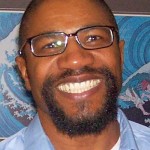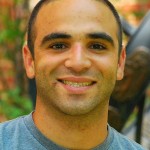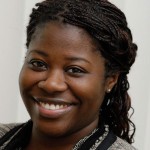Clark University welcomes new tenure-track faculty members for the 2014-2015 academic year.

GSOM
David Correll, Assistant Professor in the Graduate School of Management, graduated from Iowa State University with a Ph.D. in supply chain management and an M.S. in sustainable agriculture, as well as biorenewable fuels and technology. His research applies elements of operations research and ecology to envision and test new ideas for sustainable supply chain design. David is especially interested in energy issues and has published articles on supply chain design for advanced biofuels, served as an ad hoc reviewer for the journal Energy Policy, and served in various capacities to build entrepreneurial waste vegetable oil-to-biodiesel facilities while in graduate school. Before earning his graduate degrees, David worked as an oil and gas analyst at a private energy consultancy in New York City and as an oil and gas economist for the U.S. Department of Energy in Washington, D.C. He earned his B.A. in international relations from the George Washington University in Washington.

Economics
David Cuberes, Associate Professor of Economics, is an economist with interests in macro and urban economics. His research covers a wide range of topics including economic growth and institutions, gender inequality, urbanization and city growth, and the demographic transition. He holds a Ph.D. in economics from the University of Chicago and has been an assistant professor at Clemson University, the University of Alicante (Spain), and the University of Sheffield (United Kingdom). He has acted as a consultant to the World Bank since 2003, explaining the diffusion of technology across countries, the process of rural urban transformation in South Asia, and the productivity cost associated with gender inequality in the labor market in different countries. His research has been discussed in The Wall Street Journal, The Economist, the BBC, and the economics blog voxEU, among others.

English
Eric L. De Barros, Assistant Professor of English, holds a Ph.D. in English literature with an emphasis in Renaissance literature and education from the University of Illinois at Urbana-Champaign. His research centers on the politics of embodied subjectivity and specifically examines how early modern thinkers variously confronted the theoretical tension between the body and discourse in an effort to work through the period’s most pressing concerns. His main book project, “The Labors of Hercules: Embodied Learning and Male Domestication in Early Modern Culture and Literature,” explores the tendency of educational theorists to focus on the bodies of grammar schoolboys and rhetorically materialize learning and cognitive processes into the physical and materialistic terms of their aristocratic patrons. Eric has taught a range of courses including “Shakespeare and the Pedagogy of Sexual Violence,” “Epic Masculinities: From Homer to Milton,” and “Autobiographies of Black Masculinity.”

Biology
Rob Drewell, Associate Professor of Biology, is a developmental biologist. His research utilizes experimental molecular genomic, mathematical and computational approaches to investigate the regulation of gene expression during embryonic development. Much of his work is focused on using insect model species, including the fruit fly and honey bee. Prior to arriving at Clark, Rob was an associate professor at Harvey Mudd College in Claremont, Cal. He has received research grants from the National Institutes of Health, a CAREER award from the National Science Foundation and been recognized as a Distinguished Mentor by the Howard Hughes Medical Institute. He earned his Ph.D. from the University of Cambridge and a bachelor’s degree (with honors) in molecular genetics from King’s College, University of London.

Biology
John Gibbons, Assistant Professor of Biology, is an evolutionary genomicist. His research aims to shed light on the evolutionary forces and genomic processes underlying phenotypic variation. In particular, John’s research is focused on understanding how humans have altered the genomes of domesticated microbes and how large-scale genomic alterations influence the virulence of fungal pathogens. He earned a B.S. in biology from Keene State College and a Ph.D. in biological sciences from Vanderbilt University. Since receiving his doctorate, John has worked as a postdoctoral research fellow at Harvard School of Public Health.

Math and Computer
Science
John Magee’s (Assistant Professor of Math and Computer Science) primary research interests include computer vision, human-computer interaction, and assistive technology. He investigates novel user interface technologies that enable people with profound disabilities to communicate and participate socially in the world around them through computers. A major focus area is ability-based interfaces that change and adapt to provide for the diverse education, communication, and social needs of users of all abilities. He is also interested in applying computer vision and human-computer interaction techniques to interdisciplinary problems and establishing collaborations with biology, GIS, psychology, and education. John holds a Ph.D. and M.A. in computer science from Boston University, and a B.A. in computer science and mathematics from Boston College. For the past three years, he has been a visiting assistant professor in Clark’s Mathematics and Computer Science Department.

GSOM
Mary Ellen Morris is a Lecturer/Director of MS Programs in the Graduate School of Management. She most recently served as lecturer and adjunct faculty in the accounting program at the University of New Hampshire Durham, teaching in the undergraduate and M.B.A. programs and advising undergraduate accounting majors. She also spent four years as a visiting professor of accounting and adjunct faculty at the University of Massachusetts Lowell, serving as a thesis advisor to the undergraduate Honors Program. She’s taught accounting at Bentley University, Northern Essex Community College, and Park University at Hanscom Air Force Base. Mary Ellen previously held numerous senior level corporate positions, including audit manager, controller, director of finance and CFO in insurance, healthcare, manufacturing, engineering, research and development, and software. She has also worked in public and non-profit organizations. She holds bachelor’s in finance from UMass Amherst, a master’s in finance from Bentley University, and is AACSB certified.

Psychology
Nicole Overstreet’s (Assistant Professor of Psychology) program of research examines sociocultural factors that contribute to mental and sexual health disparities among black women and other marginalized groups. Her primary research examines the consequences of intimate partner violence-related stigma on health outcomes from a multi-level perspective (i.e., personal, interpersonal, structural level). Her second line of work focuses on the influence of societal stereotypes around race and gender on the sexual health and well-being of marginalized groups. Nicole earned her Ph.D. in social psychology from the University of Connecticut and was a postdoctoral fellow at the Center for Interdisciplinary Research on AIDS at Yale University.

Psychology
Andrew L. Stewart, Assistant Professor of Psychology, is a social psychologist studying intergroup relations in the contexts of gender, race, nationality, sexual orientation, and class. His research examines how widespread beliefs about social groups contribute to intergroup violence and discrimination, and how to change those beliefs to reduce violence and discrimination. For example, Andrew’s research has examined how sexist and traditional masculinity norms contribute to violence and discrimination against women, and he has administered and evaluated sexual assault prevention programs for college men to reduce sexual violence. Andrew received his Ph.D. and M.A. degrees in social psychology from the University of Connecticut and B.S. degrees in psychology and mathematics from Colorado State University.

Zhenyang (David) Tang, Assistant Professor in the Graduate School of Management, taught investments and introduction to finance at the University of Alberta prior to joining Clark University. His research interests include empirical corporate finance and market efficiency, with a recent focus on how trading by corporate officers and directors affects stock price informativeness, cost of capital and firm value. He also works extensively in fields such as corporate investment decisions, corporate executive characteristics and accounting information quality. David received his Ph.D. in finance from the University of Albert, and bachelor’s and master’s degree in economics from Tsinghua University.


